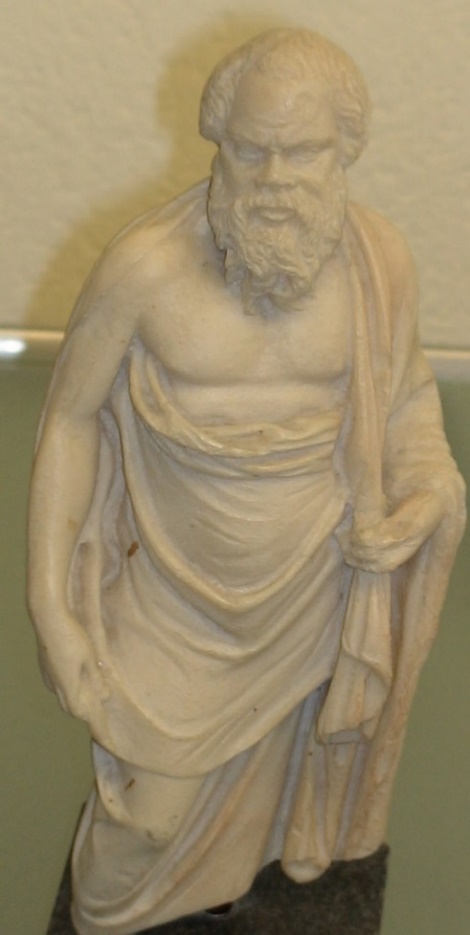-

Socrates (469-399 BC) was a Greek philosopher whose way of life, character and his thoughts exerted a profound influence on ancient and modern philosophy. One day someone came to see Socrates, and said to him: “Do you know, what I just heard about your friend?”
“One moment,” Socrates replied, “Before you tell me, I’d like to inquire you with the test of the three sieves. Before telling everything about others, it is good to take the time to filter what you would like to say. The first sieve is the truth. Have you checked if what you tell me is true? ” “No, I’ve just heard of it.” “So, you don’t know if it’s the truth” said Socrates. “The second sieve is that of goodness. What do you want to tell me about my friend, is it something good?” “Ah no, in reverse!”
“So,” Socrates continued, “You want to tell me bad things about him and you’re not even sure they are true. The third sieve remains, that of utility. Is it helpful for me to know what this friend would have done to me?” “No, not at all.”
“So,” concluded Socrates, “if, what you wanted to tell me is neither true, nor good, nor useful, I prefer not to know; and I advise you to forget it.”
Dr. med. André Simon © Copyright
P.S.
Never speak negatively of absent colleagues.
The philosopher Epictetus (c. 50-138 AC) would say humoristically:” So, if anyone should tell you that a particular person has spoken critically of you, just smile and reply: I guess that person doesn’t know all my other faults. Otherwise, he wouldn’t have mentioned only these.”
Übersetzung von Dietrich Weller
Die Lektion des Sokrates
Sokrates (469-399 vor Chr.) war ein griechischer Philosoph, dessen Lebensweise, Charakter und Gedanken einen tiefgreifenden Einfluss auf die altertümliche und moderne Philosophie ausübte.
Eines Tages kam jemand zu Sokrates und fragte ihn: „Weißt du, was ich gerade über deinen Freund gehört habe?“
„Moment mal,“ antwortete Sokrates, bevor du mir das erzählst, möchte ich dich mit den Fragen der drei Siebe prüfen. Bevor du alles über andere erzählst, ist es gut, dir Zeit zu nehmen, um zu filtern, was du erzählen möchtest. Das erste Sieb ist die Wahrheit. Hast du geprüft, ob das, was du erzählen willst, wahr ist?“
„Nein, ich habe davon gehört.“
„Also weißt du nicht, ob es die Wahrheit ist,“ sagte Sokrates. „Das zweite Sieb heißt Güte. Was du mir über meine Freund erzählen willst, ist das etwas Gutes?“
„Nein, ganz im Gegenteil!“
„Also,“ fuhr Sokrates fort, „du willst mir schlechte Dinge über ihn erzählen, und du bist noch nicht einmal sicher, ob sie wahr sind. Das dritte Sieb heißt Nützlichkeit. Ist es hilfreich für mich zu wissen, was dieser Freund mir angetan hätte?“
„Nein, überhaupt nicht!“
„Also,“ schloss Sokrates, „wenn das, was du mir erzählen willst, weder wahr noch gut noch nützlich ist, ziehe ich es vor, es nicht zu wissen, und ich rate dir, es zu vergessen.“
PS:
Sprich nie negativ über abwesende Kollegen und Kolleginnen. Wir sollten mit dem gleichen Ton und mit der gleichen Wortwahl sprechen, die wir in ihrer Anwesenheit benutzen würden.
Der Philosoph Epiktet (ca. 50-138 nach Chr.) sagt humorvoll: „Wenn jemand dir erzählen sollte, dass eine bestimmte Person kritisch über dich gesprochen hat, lächle einfach und antworte: Ich nehme an, dass diese Person meine anderen Fehler nicht kennt. Sonst hätte sie nur diese erwähnt!“